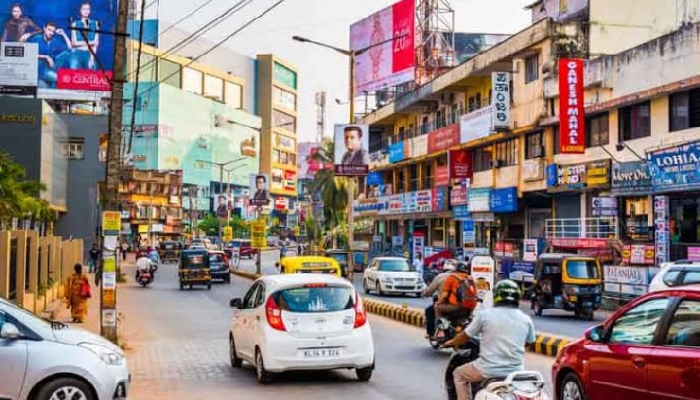Mangaluru: As many as 178 passengers arrived in the coastal city from Dubai as the second flight under the Vande Bharat Mission landed at the Mangaluru International Airport (MIA) at 7.55am on Monday.
Among 178 passengers, there were 99 male, 67 female, 11 children and one infant.
Dakshina Kannada deputy commissioner Sindhu B Rupesh said that all the necessary arrangements had been made to ensure that the passengers were not inconvenienced in any way.
“All of them have been provided with health kits, sufficient food, sim cards, etc. We have also set up facilities at the airport where they can exchange foreign currency. The emigration process was conducted only after each passenger was subjected to screening by health department personnel at the airport. We will have their throat swabs tested for Covid-19 on Tuesday,” Sindhu said.
Personnel attired in personal protective equipment gear shifted the passengers’ luggage, while buses had been arranged for transporting them to quarantine facilities, Sindhu added.
Probationary IAS officer Rahul Shinde, additional deputy commissioner MJ Roopa, district health officer Dr Ramachandra Bairy and MIA director VV Rao were among those who received the returning Indians along with the DC at the airport.
Public, including friends and relatives of the passengers, were barred entry to the airport.
Rooms in as many as 10 hotels have been reserved to quarantine passengers flying in to Mangaluru from the Gulf. The rooms are priced between Rs 1,000 and Rs 5,400. Meanwhile, those unable to afford rent will be accommodated at government hostels.
Mangaluru, May 18: The second repatriation flight to the coastal Karnataka from Dubai landed at Mangaluru International Airport at 7.45 pm. today.Mangaluru: As many as 178 passengers arrived in the coastal city from Dubai as the second flight under the Vande Bharat Mission landed at the Mangaluru International Airport (MIA) at 7.55am on Monday.
Dakshina Kannada deputy commissioner Sindhu B Rupesh said that all the necessary arrangements had been made to ensure that the passengers were not inconvenienced in any way.
“All of them have been provided with health kits, sufficient food, sim cards, etc. We have also set up facilities at the airport where they can exchange foreign currency. The emigration process was conducted only after each passenger was subjected to screening by health department personnel at the airport. We will have their throat swabs tested for Covid-19 on Tuesday,” Sindhu said.
Personnel attired in personal protective equipment gear shifted the passengers’ luggage, while buses had been arranged for transporting them to quarantine facilities, Sindhu added.
Probationary IAS officer Rahul Shinde, additional deputy commissioner MJ Roopa, district health officer Dr Ramachandra Bairy and MIA director VV Rao were among those who received the returning Indians along with the DC at the airport.
Public, including friends and relatives of the passengers, were barred entry to the airport.
Rooms in as many as 10 hotels have been reserved to quarantine passengers flying in to Mangaluru from the Gulf. The rooms are priced between Rs 1,000 and Rs 5,400. Meanwhile, those unable to afford rent will be accommodated at government hostels.







Comments
What about Reddy brothers and Yediyurappa? Don't IT dept know of their illegal wealth?
IT raid doesnt mean jack if you have contacts in ruling party. Shah the criminal can use these raid as bargaining chips with SM krishna
Modi doesn't make a difference between ruling party or opposition.
He will go after any scamster...well done.
If you send a suitcase to amitshah nothing will happen to you either.
Shah is collecting the money
SMK the turn coat, is a spent force for congress & Jumla party as well. He cant do any damage to Congis. Just to have another feather in the cap of Feku, this raid is conducted. There r Sharks in Feku's own party who r free like Adani, Sushil Modi, Vijaivarghia, Ajay Devgun, Ashok Pandit etc. Nothing will happen to them.
Why no raid on Reddy brother?
The corrupt must be caught, must need to take strict action.
Add new comment